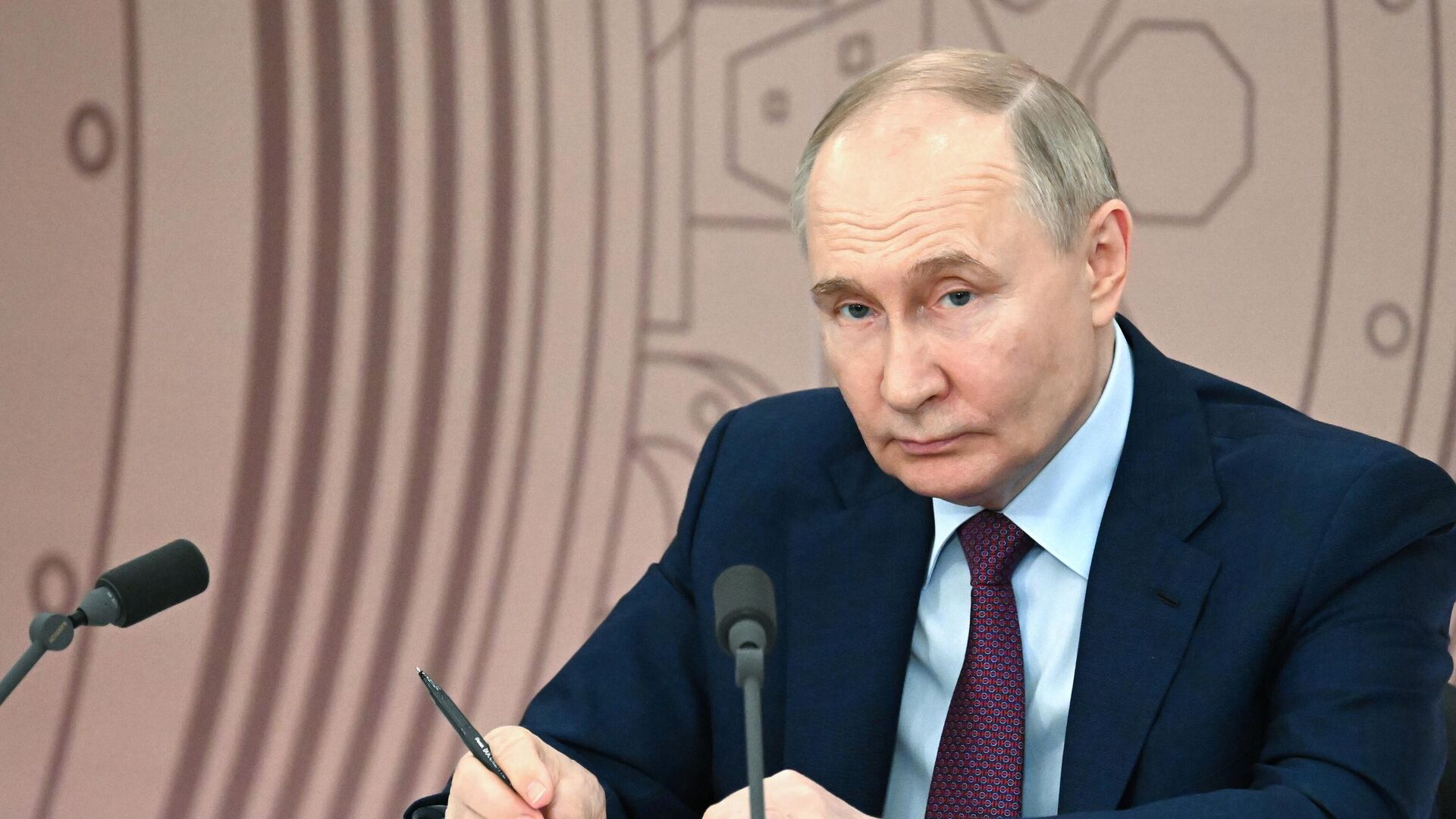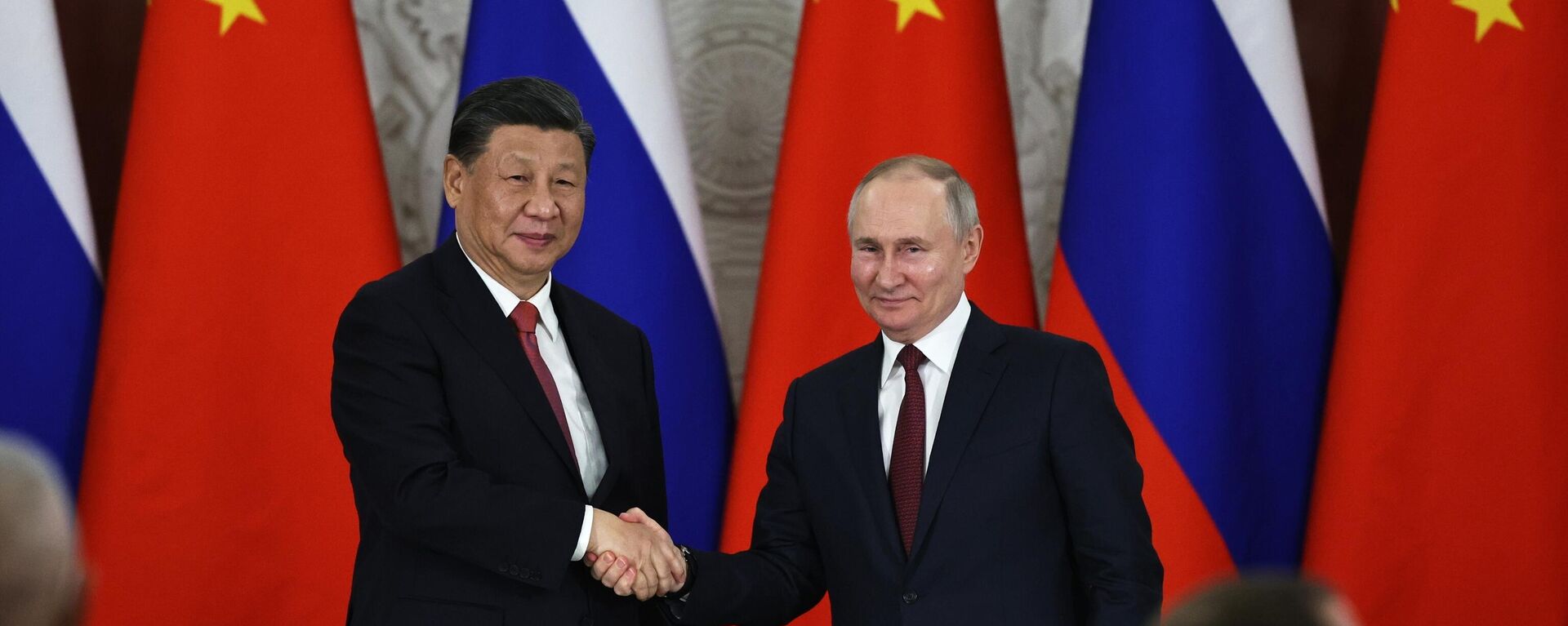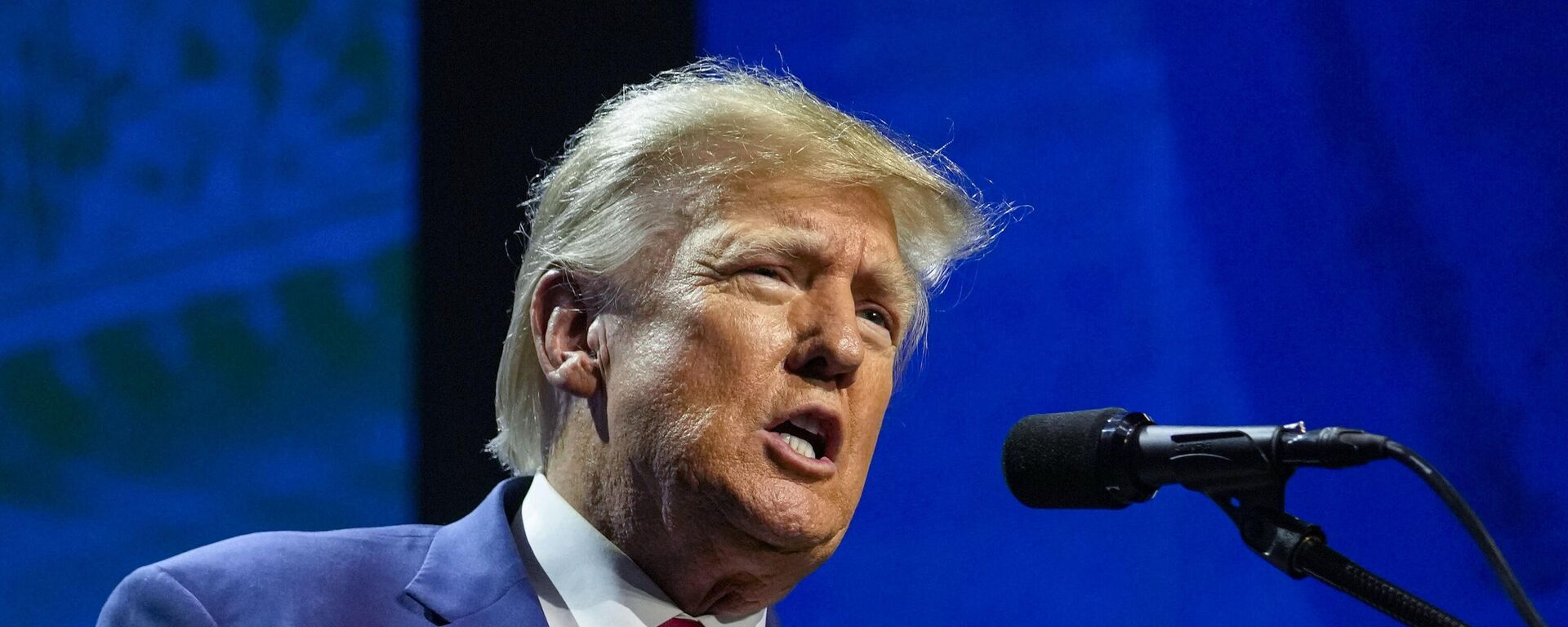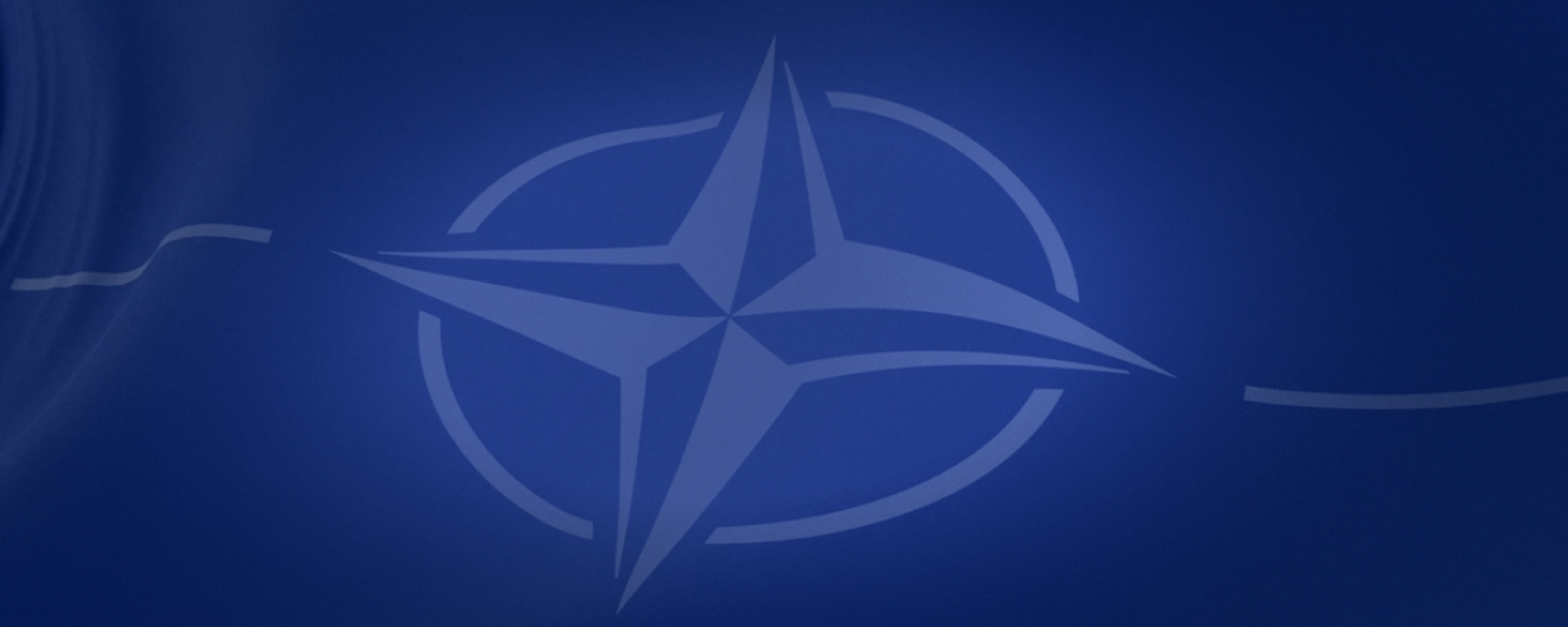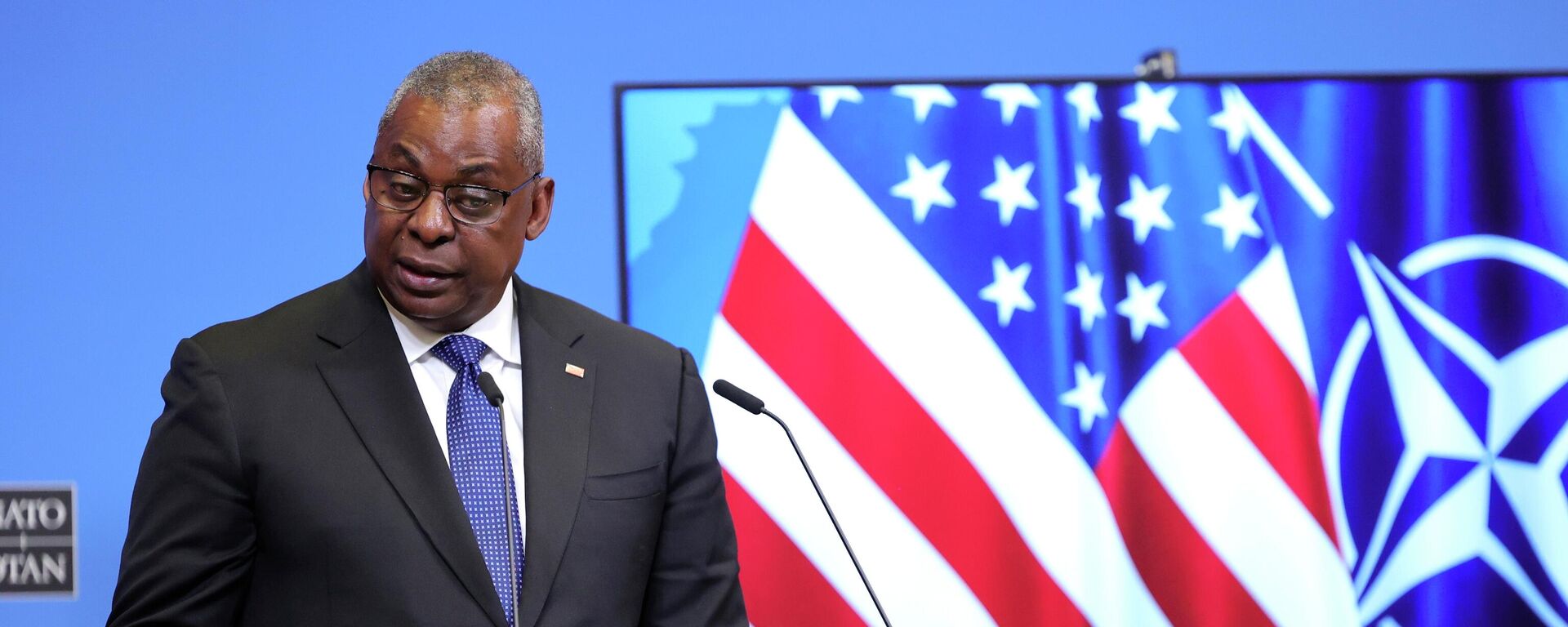https://sputnikglobe.com/20240615/rejection-of-putins-peace-offer-exposes-true-motivations-of-natos-proxy-war-in-ukraine-1118967820.html
Rejection of Putin's Peace Offer 'Exposes' True Motivations of NATO's Proxy War in Ukraine
Rejection of Putin's Peace Offer 'Exposes' True Motivations of NATO's Proxy War in Ukraine
Sputnik International
The Russian president has again insisted the country is open to pursuing peace with Kiev, but a cessation of hostilities runs counter to the interests and objectives of Western elites.
2024-06-15T06:11+0000
2024-06-15T06:11+0000
2024-06-15T06:11+0000
ukraine
world
russia
vladimir putin
nato
ukraine crisis
ukrainian conflict
us hegemony
nato expansion
nato membership
https://cdn1.img.sputnikglobe.com/img/07e8/06/0f/1118967532_0:0:3071:1728_1920x0_80_0_0_aea678be06c535f12fd4a267b7ddb3a3.jpg
Russian President Vladimir Putin reiterated the country’s conditions for an end to the Ukraine conflict during a lengthy address at the country’s Ministry of Foreign Affairs Friday.Moscow’s central demands are the same as those put forth during previous rounds of negotiations sabotaged by the United States: Ukraine must become a neutral state not aligned with Western powers’ crusade against the Russian nation. Additionally, Kiev must be demilitarized and de-Nazified, Putin stated, and the country must formally renounce plans to join NATO.The offer was rejected almost as soon as it was extended, leading Foreign Ministry spokeswoman Maria Zakharova to jokingly ask whether it had even yet been translated into Ukrainian. “With such statements they want to deprive the citizens of Ukraine of a real chance for peace,” said the Russian official.But a deeper analysis of the conflict and its history reveals why a peaceful resolution remains so elusive. Sputnik’s The Critical Hour program hosted a series of guests to discuss the Russian president’s proposal, breaking down the context of the Ukraine crisis and Western elites’ deep-seated interest in its continuation.Manufacturing ConsentAnti-Russian sentiment has been on the rise in the West for a number of years, with the emergence of the Russiagate narrative alleging Moscow’s influence in the 2016 US presidential election representing a key acceleration of this trend. The conspiracy theory, widely promulgated by Western intelligence agencies in mainstream media, laid the groundwork for the Cold War-esque narrative that Russia once again represents an existential threat to the West’s purported democratic values and, by extension, to the West itself.Former President Barack Obama had announced a “pivot to Asia” just a few years prior, stressing the importance of responding to China’s ascendance as a major world power. Meanwhile, the strengthening of Sino-Russian relations under Chinese President Xi Jinping helped solidify the formation of a geopolitical bloc countering US hegemony, a dynamic that has intensified with the growth of the BRICS economic alliance. The United States has become increasingly intent on challenging this counter-hegemonic force and undermining Russia in particular.The launch of Russia’s special military operation in the Donbass finally gave the US an excuse to confront Moscow militarily, with Western media portraying Russia as a belligerent imperialist power. But the claim bore little resemblance to reality.Former Washington Post bureau chief Jon Jeter argued that Western elites still oppose any lowering of tensions between Russia and Ukraine as they remain intent on denying Moscow a victory.Independent journalist Caleb Maupin agreed that Western media would continue to help undermine any rapprochement with Moscow. “A recent poll showed 94% of Americans want exactly what Putin just offered, which is a diplomatic end,” he noted. “Trump may come in there and say, ‘hey, Putin offered a deal.’ People want a deal. Now the mainstream media will call him a Russian bot, but 94% of Americans want it.”Climbing the Escalation Ladder“Russia has been incredibly restrained and strategic throughout this, and they from the beginning have wanted to negotiate peace,” Flowers observed.Western powers have instead chosen to escalate the conflict against Moscow, at times openly describing the war as a ploy to attempt to weaken Russia and China. US President Joe Biden has steadily provided the Kiev regime with more sophisticated and destructive weaponry and has increasingly countenanced Ukrainian strikes within Russian territory.The provision of arms to Ukraine has furthered the goals of US foreign policy hawks in a number of areas, giving the United States an excuse to increase military spending and manufacture new weapons to replace those sent to Kiev.The conflict has also spurred European NATO allies to remilitarize, kickstarting the continent’s long neglected defense industry in an effort to help supply Ukraine. Sweden has reinstated mandatory military service, while UK Prime Minister Rishi Sunak has vowed to do the same.The remilitarization of Europe places Western powers in a position to prepare for a third World War to stem the rise of Russia and China, which figures in the US military have claimed must take place within the next few years. The effort has also, naturally, padded the pockets of arms manufacturers and military contractors.“They've really milked it for all it's worth,” said Maupin. “We're going to learn that this war was the biggest money laundering operation in history.”The human cost of the conflict, meanwhile, has been substantial, with Flowers noting that thousands of ethnic Russians were killed in eastern Ukraine after the 2014 US-backed Maidan Coup. “This was all manufactured by US foreign policy and support for what was happening in Ukraine,” said the peace activist. “It's not like Russia is making an unrealistic demand. They're saying, ‘look, this is a majority Russian territory that was being attacked for all of these years and that attack was escalated.’”The Peace ImperativePutin’s peace proposal provides a powerful tool to those in the West who seek an end to the war in Ukraine, Flowers claimed.“Russia's made this offer,” she noted. “These are concrete demands. These are reasonable demands. And it's very timely and important because folks need to realize that the Biden administration has authorized Ukraine to attack deeper into Russian territory. This is escalating the situation.”“They're just throwing good money after bad – which, of course, that's the point, right?” said Jeter. “They're feeding the military industrial complex, which is the real objective here.”But the journalist warned of dire consequences if tensions continue to escalate beyond control.Host Garland Nixon agreed that the rejection of Putin’s peace overtures gives lie to the pretense that NATO is a defensive alliance dedicated to providing security for Europe. The refusal to acknowledge Russia’s basic security requirements exposes the dishonesty at the heart of Western rhetoric, he claimed, revealing that the US and its allies have other motives in prolonging the war.“This is not something that the United States is being shy about. And it's really going to have to be us that say this is not acceptable… We need to continue to build on this global momentum pushing for peace.”
https://sputnikglobe.com/20240605/nato-would-stand-no-chance-against-russia-china-military-alliance--analyst-1118772307.html
https://sputnikglobe.com/20230711/bidens-decision-to-send-cluster-bombs-to-ukraine-will-drag-us-close-to-ww3---trump-1111819035.html
https://sputnikglobe.com/20240220/tenth-anniversary-of-ukraines-maidan-coup-a-chronicle-1116886897.html
https://sputnikglobe.com/20240404/from-founding-to-expansion-reflecting-on-75-years-of-nato-1117736866.html
https://sputnikglobe.com/20240409/us-defense-secretary-acknowledges-admitting-ukraine-in-nato-threatens-russian-security-1117836272.html
ukraine
russia
Sputnik International
feedback@sputniknews.com
+74956456601
MIA „Rossiya Segodnya“
2024
John Miles
https://cdn1.img.sputnikglobe.com/img/07e8/01/19/1116388787_0:0:1316:1316_100x100_80_0_0_77e70d36afd983012b1c5d38ddb84156.jpg
John Miles
https://cdn1.img.sputnikglobe.com/img/07e8/01/19/1116388787_0:0:1316:1316_100x100_80_0_0_77e70d36afd983012b1c5d38ddb84156.jpg
News
en_EN
Sputnik International
feedback@sputniknews.com
+74956456601
MIA „Rossiya Segodnya“
Sputnik International
feedback@sputniknews.com
+74956456601
MIA „Rossiya Segodnya“
John Miles
https://cdn1.img.sputnikglobe.com/img/07e8/01/19/1116388787_0:0:1316:1316_100x100_80_0_0_77e70d36afd983012b1c5d38ddb84156.jpg
nato forces, nato-russia war, nato russia war, nuclear weapons, red line, russia fights against nato, nato provokes russia, nato's aggression, russian aggression, russia's aggression, unprovoked war, unprovoked intervention, unprovoked invasion, russia-china cooperation, russia vs nato, ww3, wwiii, war in ukraine, ukraine war, stop the war
nato forces, nato-russia war, nato russia war, nuclear weapons, red line, russia fights against nato, nato provokes russia, nato's aggression, russian aggression, russia's aggression, unprovoked war, unprovoked intervention, unprovoked invasion, russia-china cooperation, russia vs nato, ww3, wwiii, war in ukraine, ukraine war, stop the war
Rejection of Putin's Peace Offer 'Exposes' True Motivations of NATO's Proxy War in Ukraine
The Russian president has again insisted the country is open to pursuing peace with Kiev, but a cessation of hostilities runs counter to the interests and objectives of Western elites.
Russian President Vladimir Putin reiterated the country’s conditions for an end to the Ukraine conflict during
a lengthy address at the country’s Ministry of Foreign Affairs Friday.
Moscow’s
central demands are the same as those put forth during previous rounds of negotiations
sabotaged by the United States: Ukraine must become a neutral state not aligned with Western powers’ crusade against the Russian nation. Additionally, Kiev must be demilitarized and de-Nazified, Putin stated, and the country must formally renounce plans to join NATO.
The offer was rejected almost as soon as it was extended, leading Foreign Ministry spokeswoman Maria Zakharova to jokingly ask whether it had even yet been translated into Ukrainian. “With such statements they want to deprive the citizens of Ukraine of a real chance for peace,” said the Russian official.
But a deeper analysis of the conflict and its history reveals why a peaceful resolution remains so elusive. Sputnik’s The Critical Hour program hosted a series of guests to discuss the Russian president’s proposal, breaking down the context of the Ukraine crisis and Western elites’ deep-seated interest in its continuation.
Anti-Russian sentiment has been on the rise in the West for a number of years, with the emergence of the Russiagate narrative alleging Moscow’s influence in the 2016 US presidential election representing a key acceleration of this trend. The conspiracy theory, widely
promulgated by Western intelligence agencies in mainstream media, laid the groundwork for the Cold War-esque narrative that Russia once again represents an existential threat to the West’s purported democratic values and, by extension, to the West itself.
Former President Barack Obama had announced a “pivot to Asia” just a few years prior, stressing the importance of responding to China’s ascendance as a major world power. Meanwhile, the strengthening of
Sino-Russian relations under Chinese President Xi Jinping helped solidify the formation of a geopolitical bloc
countering US hegemony, a dynamic that has intensified with the growth of the BRICS economic alliance. The United States has become increasingly intent on challenging this counter-hegemonic force and undermining Russia in particular.
The launch of Russia’s special military operation in the Donbass finally gave the US an excuse to confront Moscow militarily, with Western media portraying Russia as a belligerent imperialist power. But the claim bore little resemblance to reality.
“We need to remember that Russia did not want to have to invade Ukraine,” noted Margaret Flowers, a peace activist and editor at the website Popular Resistance. “They tried and tried and tried to warn and say, ‘look, here's what you need to do. Stop killing the ethnic Russians. Stop threatening to join NATO and take our security interests seriously, and the West refused to do that over and over again.”
Former Washington Post bureau chief Jon Jeter argued that Western elites still oppose any lowering of tensions between Russia and Ukraine as they remain intent on denying Moscow a victory.
“I would be surprised to see any real discussion of this in the mainstream United States news media, or certainly at the White House itself,” Jeter said of Putin’s peace proposal.
Independent journalist Caleb Maupin agreed that Western media would continue to help undermine any rapprochement with Moscow. “A recent poll showed 94% of Americans want exactly what Putin just offered, which is a diplomatic end,” he noted. “Trump may come in there and say, ‘hey, Putin offered a deal.’ People want a deal. Now the mainstream media will call him a Russian bot, but 94% of Americans want it.”
Climbing the Escalation Ladder
“Russia has been incredibly restrained and strategic throughout this, and they from the beginning have wanted to negotiate peace,” Flowers observed.
Western powers have instead chosen to escalate the conflict against Moscow, at times
openly describing the war as a ploy to attempt to weaken Russia and China. US President Joe Biden has steadily provided the Kiev regime with more sophisticated and destructive weaponry and has increasingly countenanced Ukrainian strikes within Russian territory.
The provision of arms to Ukraine has furthered the goals of US foreign policy hawks in a number of areas, giving the United States an excuse to increase military spending and manufacture new weapons to replace those sent to Kiev.
The conflict has also
spurred European NATO allies to remilitarize, kickstarting the continent’s long neglected defense industry in an effort to help supply Ukraine. Sweden has
reinstated mandatory military service, while UK Prime Minister Rishi Sunak has vowed to do the same.
The remilitarization of Europe places Western powers in a position to prepare for a third World War to stem the rise of Russia and China, which figures in the US military have
claimed must take place within the next few years. The effort has also, naturally, padded the pockets of arms manufacturers and military contractors.
“They've really milked it for all it's worth,” said Maupin. “We're going to learn that this war was the biggest money laundering operation in history.”
“Once the deal is made, the Russians are still right there on the border. And so we're going to have to fortify and build up,” he added, saying heightened tensions with Russia would continue to drive increased military spending in the years to come.
The human cost of the conflict, meanwhile, has been substantial, with Flowers noting that thousands of ethnic Russians were killed in eastern Ukraine after
the 2014 US-backed Maidan Coup. “This was all manufactured by US foreign policy and support for what was happening in Ukraine,” said the peace activist. “It's not like Russia is making an unrealistic demand. They're saying, ‘look, this is a majority Russian territory that was being attacked for all of these years and that attack was escalated.’”
“They'll stop at nothing and use our money for weapons, to use our people's lives in their proxy wars. This is only going to get worse unless we rise up,” Flowers emphasized.
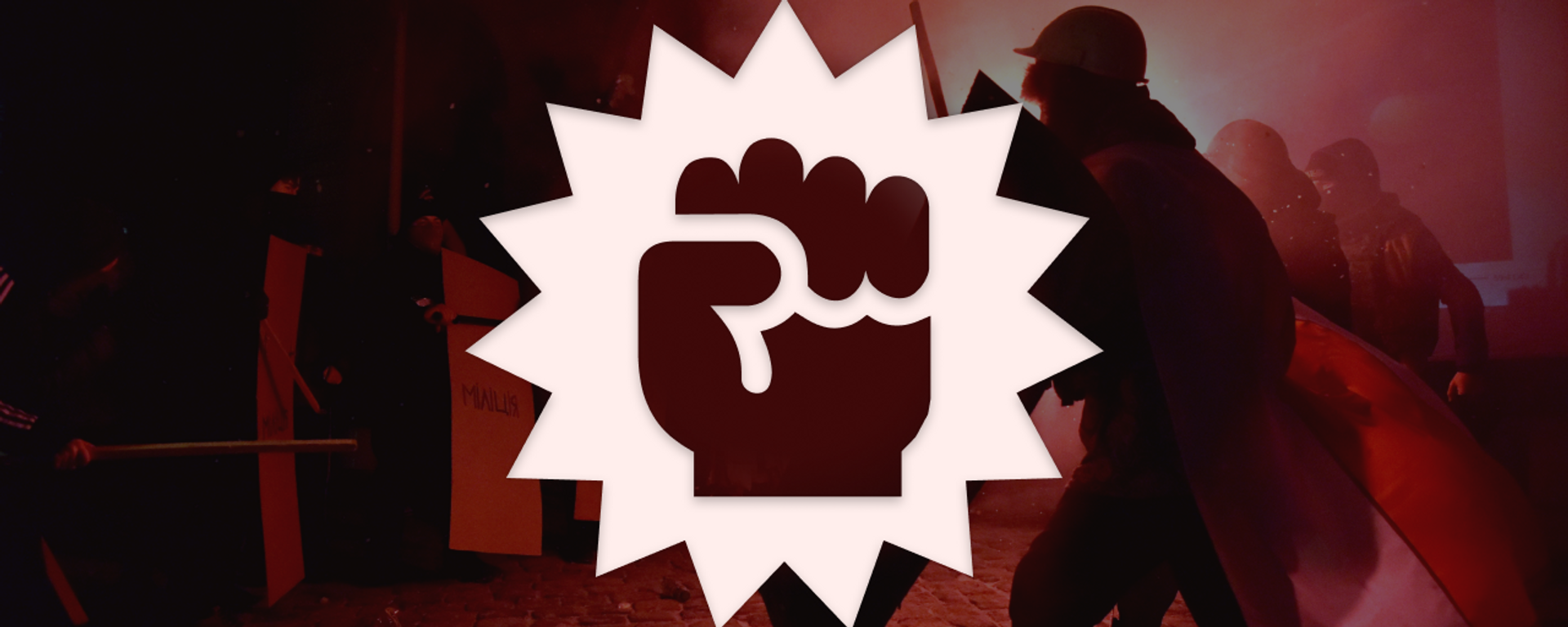
20 February 2024, 12:18 GMT
Putin’s peace proposal provides a powerful tool to those in the West who seek an end to the war in Ukraine, Flowers claimed.
“Russia's made this offer,” she noted. “These are concrete demands. These are reasonable demands. And it's very timely and important because folks need to realize that the Biden administration has authorized Ukraine to attack deeper into Russian territory. This is escalating the situation.”
“Russia is saying you need to cut this out,” she continued. “This is not going to be good. And we are not going to just sit here idly by forever and watch you continue to escalate your aggression. We are moving towards a greater conflict, a greater risk of nuclear war, is what the experts are saying. And so this is a critical time for peace activists to be saying, ‘we need Congress to act now and to get the Biden administration to stop funding and stop supporting this war and stop interfering.'”
“They're just throwing good money after bad – which, of course, that's the point, right?” said Jeter. “They're feeding the military industrial complex, which is the real objective here.”
But the journalist warned of dire consequences if tensions continue to escalate beyond control.
“This is a peace deal that I think most people will be more than willing to consider, that they will urge other parties to sit down and say, ‘why don't we look at this at least?’ It shows the contradictions of the United States, of the West that it's just desperately trying to hold on to power, trying to continually eke out profit for its investment class. And, it's not working. It's not working for the majority of the world.”
Host Garland Nixon agreed that the rejection of Putin’s peace overtures gives lie to the pretense that NATO is a defensive alliance dedicated to providing security for Europe. The refusal to acknowledge Russia’s basic security requirements exposes the dishonesty at the heart of Western rhetoric, he claimed, revealing that the US and its allies have other motives in prolonging the war.
“Over and over again it keeps getting exposed that the US’s interests are not the Ukrainian people, they're not peace in the region, that the US is, in fact, pushing the expansion of NATO globally, especially into the Pacific as the US also goes after China,” Flowers insisted. “The United States’ security strategy is great power conflict, and that's what we're seeing unfold here with the aggression towards Russia, towards China, towards Iran, the support for Israel. It just goes on and on.”
“This is not something that the United States is being shy about. And it's really going to have to be us that say this is not acceptable… We need to continue to build on this global momentum pushing for peace.”
